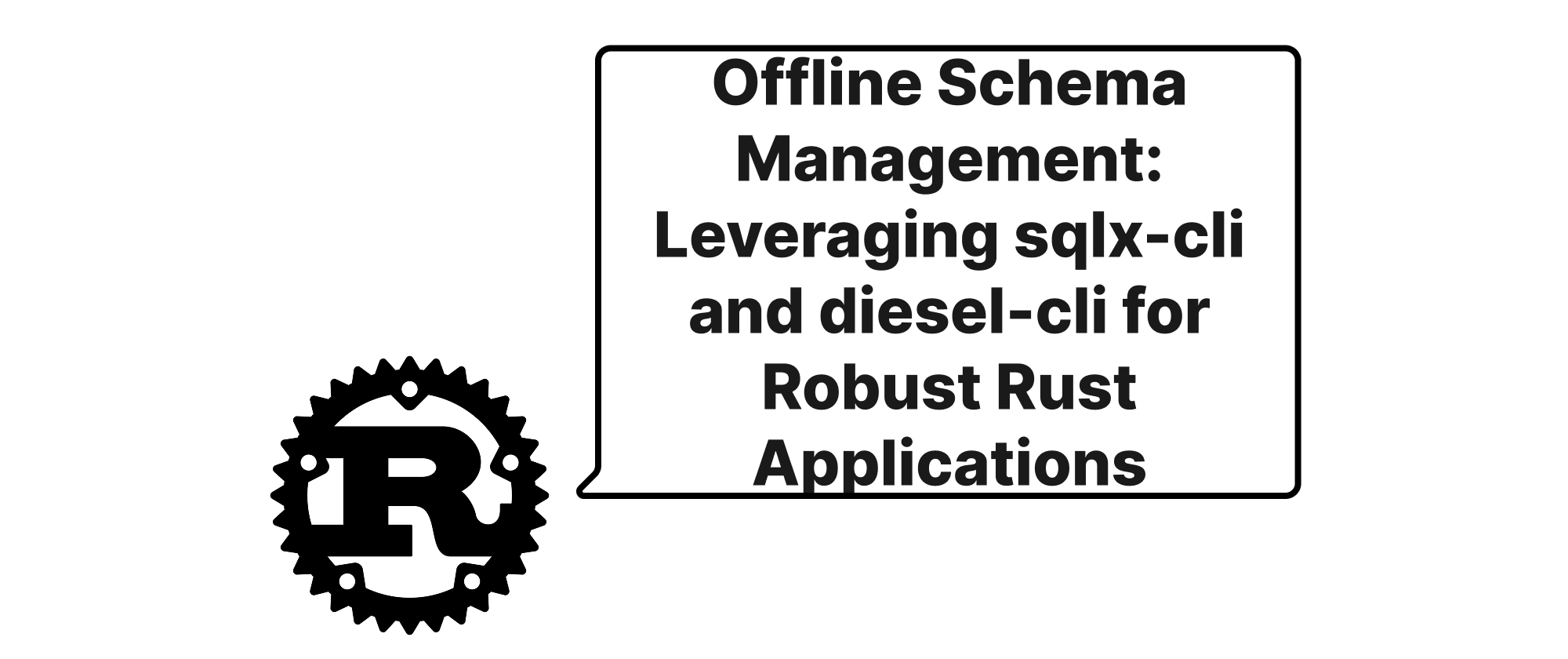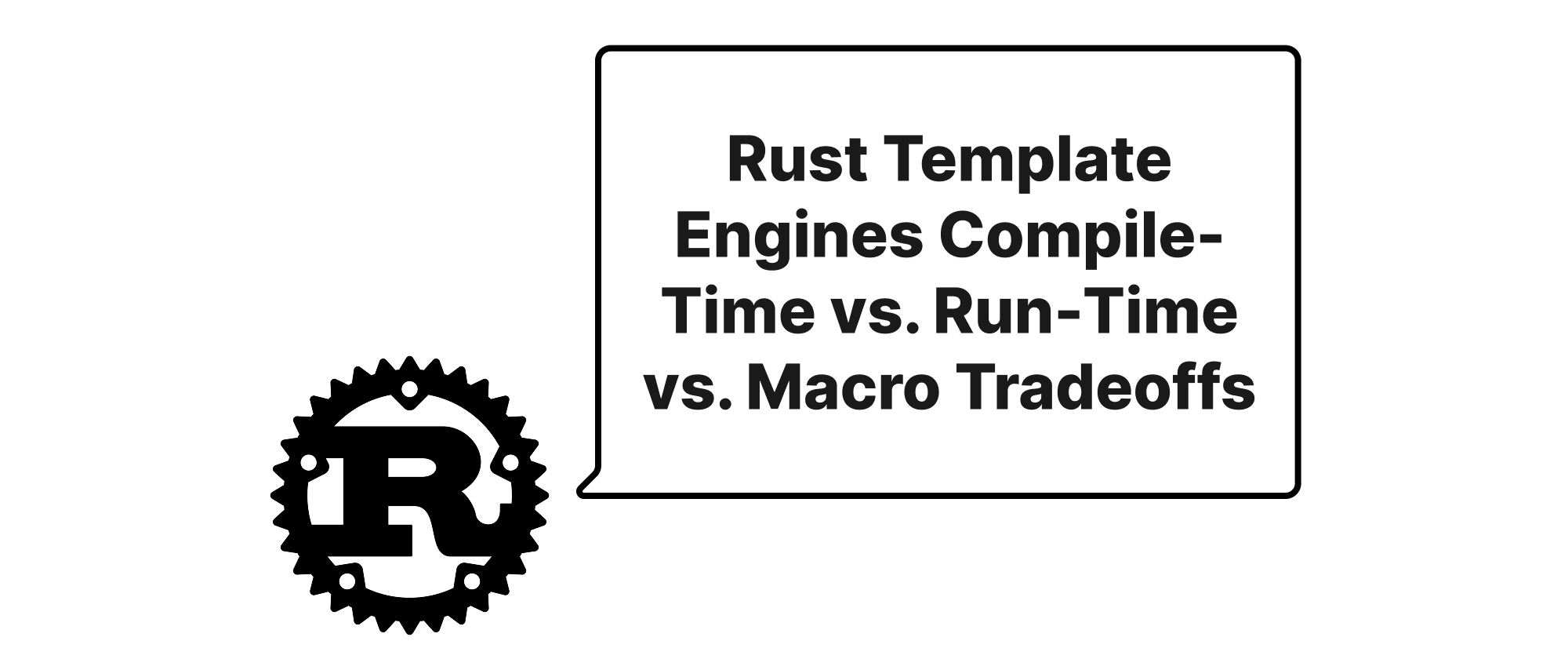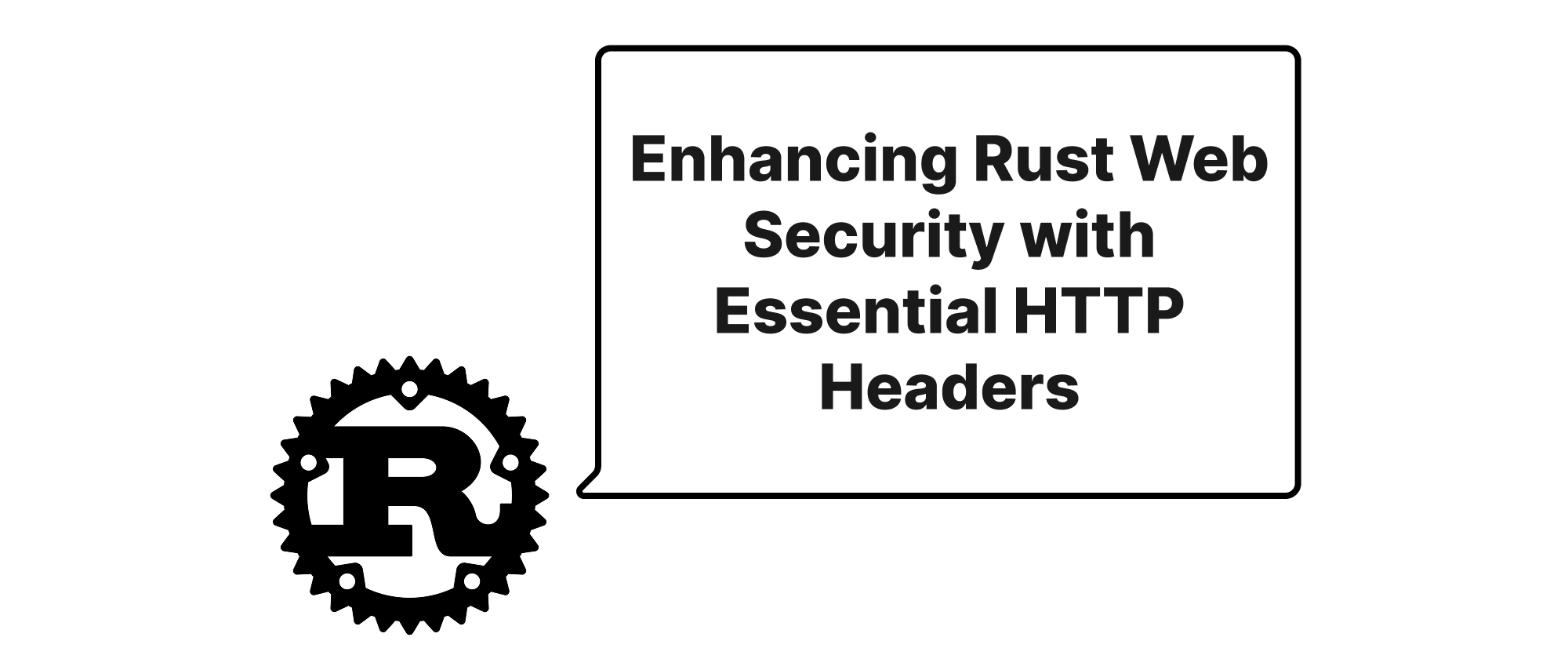Offline Schema Management: Leveraging sqlx-cli and diesel-cli for Robust Rust Applications
Wenhao Wang
Dev Intern · Leapcell

Introduction
In the world of modern software development, databases are the bedrock of almost every application. As applications evolve, so too do their data structures. Managing these changes, known as database migrations, is a critical task that directly impacts application stability, maintainability, and deployability. In the Rust ecosystem, where strong typing and compile-time guarantees are prized, ensuring that your application's data models remain in sync with your database schema is paramount. While many tools exist for managing migrations, the ability to perform offline schema checks and manage migrations without a live database connection offers significant advantages, especially in CI/CD pipelines or local development environments with stringent network access. This article delves into how Rust developers can leverage powerful command-line tools like sqlx-cli and diesel-cli to effectively manage database migrations and schemas, with a particular focus on their invaluable offline capabilities.
Understanding the Landscape
Before diving into the specifics of sqlx-cli and diesel-cli, let's clarify some core concepts that underpin database schema management in Rust:
- Database Migrations: These are programmatic changes to a database schema. They are typically versioned files (e.g., SQL scripts or Rust code) that define how to evolve the database from one state to another (e.g., adding a new table, altering a column, creating an index).
- Schema: The formal description of all the tables, columns, relationships, indexes, and other elements of a database.
- ORM (Object-Relational Mapper): A programming technique that converts data between incompatible type systems using object-oriented programming languages. In Rust,
Dieselis a prominent ORM. - Query Builder: A library that allows developers to construct SQL queries programmatically, often offering type safety and avoiding raw SQL strings.
SQLxis primarily a query builder and an asynchronous database driver. - Offline Schema Checking: The ability to verify divergences between your application's data model (e.g., Rust structs) and your database schema, or to generate migration files, without requiring a live connection to the database. This significantly speeds up development and improves CI/CD efficiency.
Both SQLx and Diesel provide robust solutions for interacting with databases in Rust, and their respective CLI tools extend this functionality to schema management. While Diesel is an ORM that focuses on type-safe queries and schema definition within Rust code, SQLx emphasizes type-safe raw SQL queries and a more hands-off approach to schema definition. Both, however, offer powerful migration utilities crucial for modern development.
sqlx-cli: Type-Safe SQL and Offline Checks
sqlx-cli is the command-line interface for the SQLx database crate. SQLx is renowned for its compile-time checks of raw SQL queries, ensuring that your queries are syntactically correct and match your database schema before you even run your application. This is where sqlx-cli shines, particularly with its offline sqlx database diff and sqlx migrate add functionalities.
At its core, sqlx-cli manages migrations through SQL script files. A typical migration workflow with sqlx-cli involves:
-
Creating a new migration:
sqlx migrate add create_users_tableThis command generates a new migration file in your designated migrations directory (usually
migrations/) with_up.sqland_down.sqlsuffixes, for applying and reverting the migration, respectively. -
Writing migration SQL: You then populate these files with your SQL DDL statements.
-- migrations/20231027100000_create_users_table.up.sql CREATE TABLE users ( id UUID PRIMARY KEY DEFAULT gen_random_uuid(), username VARCHAR(255) NOT NULL UNIQUE, email VARCHAR(255) NOT NULL UNIQUE, created_at TIMESTAMP WITH TIME ZONE DEFAULT CURRENT_TIMESTAMP );-- migrations/20231027100000_create_users_table.down.sql DROP TABLE users; -
Applying migrations: Typically, you would run:
sqlx migrate runThis applies all pending migrations to your database.
The killer feature of sqlx-cli in the context of offline checks is its ability to verify your application's queries against your migration history. SQLx stores .sqlx metadata files which are generated by previous database interactions or by
sqlx prepare. These files capture the expected schema and query types. When you have new queries or modified schema, running sqlx prepare --check can verify database migrations against your rust code and identify discrepancies without a live database connection if you have an SQLx DATABASE_URL environment variable pointing to a schema file instead of a live database.
Alternatively, sqlx-cli itself offers powerful offline checks without needing a DATABASE_URL to a schema file. Consider a project where you have a rust application and a set of migrations. Instead of booting up a database for every CI run just to check if your application's queries are still valid against the expected schema, sqlx-cli can synthesize the database schema from your migration files.
# This command can be run offline to verify that your migrations are valid SQL # and that they don't have any obvious syntax errors. sqlx migrate info
While sqlx-cli primarily focuses on running migrations, the sqlx database diff command is a powerful experimental feature that aims to address offline schema generation and comparison directly from your Rust structs, or by comparing two different database states represented through schems files, or a live database. Although not fully mature for all offline schema generation from Rust structs, its development indicates a clear path towards more sophisticated offline schema management. For now, the primary "offline check" for sqlx users often comes from the compile-time checks powered by the .sqlx metadata files which are implicitly checked by cargo check as long as SQLX_OFFLINE is set to true (or by sqlx prepare --check).
// src/main.rs #[macro_use] extern crate sqlx; #[tokio::main] async fn main() -> Result<(), sqlx::Error> { // In a real application, DATABASE_URL would be loaded from environment variables let database_url = std::env::var("DATABASE_URL") .expect("DATABASE_URL must be set"); let pool = sqlx::PgPool::connect(&database_url).await?; let row: (i64,) = sqlx::query_as("SELECT $1 FROM users") // Error here if `users` table doesn't exist .bind(150_i64) .fetch_one(&pool) .await?; println!("{}", row.0); Ok(()) }
If SQLX_OFFLINE=true is set, sqlx will use cached information to validate queries, making cargo check effectively an offline schema validation tool for your queries. This is an incredibly powerful feature for CI/CD.
diesel-cli: ORM-Driven Migrations and Schema Generation
diesel-cli is the command-line tool for the Diesel ORM. Diesel takes a different approach to database interactions, focusing on defining your schema directly within Rust code באמצעות macros. This allows it to offer a high degree of type safety for queries and manipulations.
The core of diesel-cli's schema management revolves around its schema.rs file and migration system.
-
Initializing Diesel:
diesel setupThis command sets up the necessary folders and
diesel.tomlconfiguration file. -
Generating
schema.rs: This is wherediesel-clitruly shines for offline work.diesel-clican inspect a live database connection to generate asrc/schema.rsfile, which contains Rust representations of your database tables and columns.diesel print-schema > src/schema.rsThis
schema.rsfile acts as the single source of truth for your database schema within your Rust application. However, this specific command requires a live database connection.The offline power of
diesel-clicomes from its migration system and the fact that onceschema.rsis generated, your application is type-checked against that file, not a live database. You can manually ensureschema.rsstays up-to-date with your migrations. -
Creating a new migration:
diesel migration generate create_posts_tableSimilar to
sqlx-cli, this createsup.sqlanddown.sqlfiles for your migration. -
Writing migration SQL:
-- migrations/20231027100000_create_posts_table/up.sql CREATE TABLE posts ( id SERIAL PRIMARY KEY, title VARCHAR NOT NULL, body TEXT NOT NULL, published BOOLEAN NOT NULL DEFAULT FALSE );-- migrations/20231027100000_create_posts_table/down.sql DROP TABLE posts; -
Applying migrations:
diesel migration runThis applies the migrations to your database.
The key use case for offline checking with diesel-cli arises when you need to ensure your src/schema.rs accurately reflects the state of your migrations without connecting to a live database. While diesel print-schema needs a connection, you can integrate diesel migration run with a temporary, in-memory database (if available for your chosen backend, like SQLite) or a dockerized test database that's spun up and torn down in your CI. For PostgreSQL or MySQL, this would typically involve setting up a test database.
However, the real offline power comes from the fact that your Rust code's type safety is guaranteed by schema.rs. You could generate schema.rs once, and then simply build your application and your Rust compiler will catch any discrepancies if your schema.rs no longer matches the schema represented by your Rust structs.
Consider a simple Diesel application:
// src/schema.rs (generated by diesel print-schema, or manually maintained per migrations) diesel::table! { posts (id) { id -> Int4, title -> Varchar, body -> Text, published -> Bool, } } // src/models.rs use crate::schema::posts; use diesel::Queryable; #[derive(Queryable)] pub struct Post { pub id: i32, pub title: String, pub body: String, pub published: bool, } // src/main.rs use diesel::prelude::*; use diesel::pg::PgConnection; fn main() { let database_url = std::env::var("DATABASE_URL") .expect("DATABASE_URL must be set"); let mut connection = PgConnection::establish(&database_url) .expect("Error connecting to database"); // This query is type-checked against `src/schema.rs` let results: Vec<crate::models::Post> = posts::table .filter(posts::published.eq(true)) .limit(5) .load(&mut connection) .expect("Error loading posts"); println!("Found {} published posts.", results.len()); }
If you change your migrations (e.g., add a new column to posts), and you don't update src/schema.rs, your cargo build or cargo check will likely fail if your Rust code relies on the old schema.rs. You can then re-evaluate the schema changes by running migrations on a temporary database and regenerating src/schema.rs. This process helps ensure consistency without needing a live, production-grade database instance always available.
For CI/CD, the diesel migration check command can compare the schema.rs file with what would be generated if all migrations were run, flagging discrepancies:
# This command *does* require a database connection to run the migrations # and then compare the schema, but could point to an in-memory or ephemeral DB. diesel migration check
The true offline check comes from cargo-check after schema.rs has been generated reflecting the desired schema. Any divergence from how your Rust structs interact with the database, as described by schema.rs, will result in compilation errors.
Conclusion
Both sqlx-cli and diesel-cli provide robust solutions for managing database migrations and schemas in Rust. While sqlx-cli excels at compile-time checking of raw SQL queries against a schema derived from an existing database or its own metadata, offering a powerful "offline" query validation for SQLx users, diesel-cli leverages its ORM approach to generate a schema.rs file against which your Rust code is type-checked. The ability to manage and verify your schema and migrations with these tools, even in scenarios where a live database connection is not persistently available, significantly streamlines development workflows, strengthens CI/CD pipelines, and ultimately leads to more reliable Rust applications. Mastering these CLI tools is essential for any Rust developer building database-backed applications.


